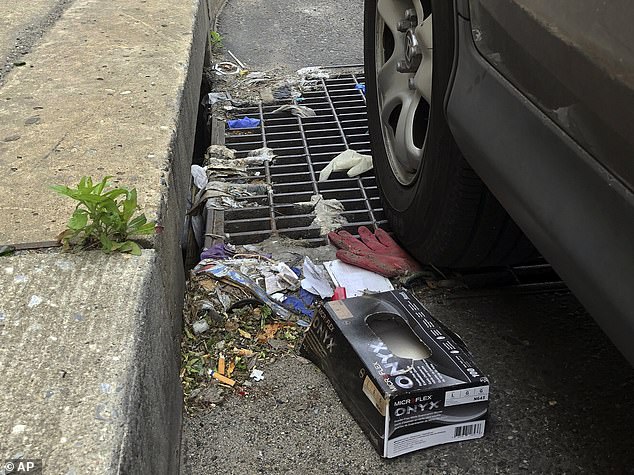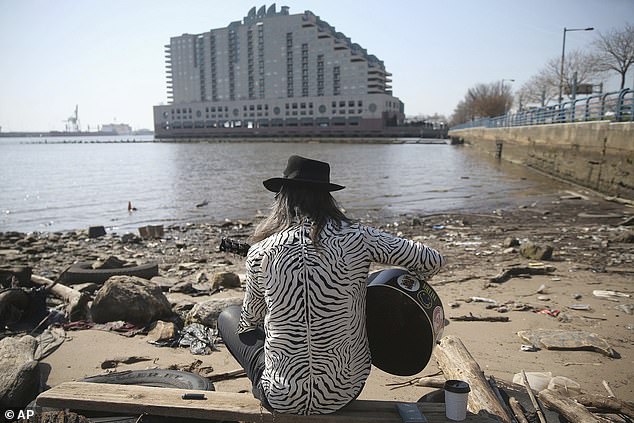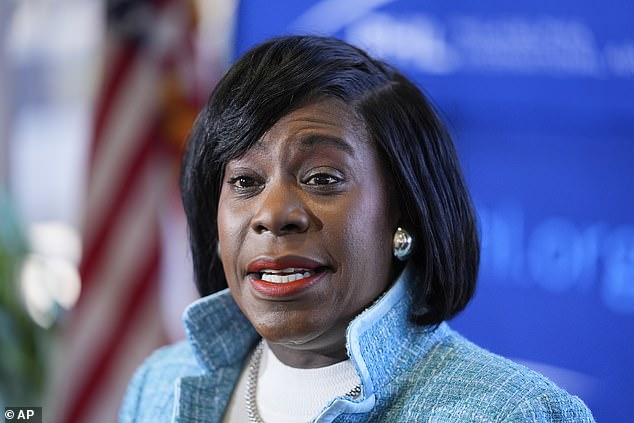Raw polluted sewage is spewing out of drains and waterways in Philadelphia at alarming rates, according to a new report.
The Democratic-run city had at least one drain that overflowed with the horrid waste an average of 65 days a year from 2016 to 2024, a report published by PennEnvironment Research & Policy Center said.
The findings, published on Monday, said the sewage was found in five local bodies of water – Cobbs Creek, the Delaware River, the Schuylkill River and Tacony Creek.
That raw sewage can linger in the water for multiple days, making it unsafe for people to get in or drink from it, the authors of the report, by John Rumpler, clean water director and senior attorney for Environment America, and Elizabeth Ridlington, the associate director and senior policy analyst, Frontier Group, concluded.
The Delaware River is used by Philadelphians and residents of Camden, New Jersey for drinking water and recreational activities.
From 2016 to 2024, 12.7 billion gallons of raw sewage mixed with polluted storm water before seeping into local waterways in The City of Brotherly Love, per the report.
In Camden County, the gross waste flowed into the Delaware River and other bodies of water an average of 76 days a year during that same time period.
Some of the raw waste is coming from suburban communities that are allowed to send a combined total of a maximum of 128 gallons of wastewater a day into Philadelphia, the report stated.

Philadelphia had at least one drain that overflowed with the horrid waste an average of 65 days a year from 2016 to 2024, according to a new report

During that same time, 12.7 billion gallons of raw sewage mixed with polluted storm water before seeping into local waterways in The City of Brotherly Love
Several popular water activities, including swimming, fishing and boating in polluted bodies of water cause around 90 million cases of illness each year in the US, according to PennEnvironment.
Bacteria, viruses and parasites inside the sewage can cause severe illnesses like diarrhea, intestinal and lung infections, fever, cramps, and sometimes even death.
The report has urged both local and federal leaders to tackle this ongoing and unhealthy issue.
‘While the task of cleaning the Delaware is daunting, there is reason for hope. Some cities have already vanquished massive sewage pollution to make their rivers much cleaner,’ it read, pointing to Oregon’s success with keeping Portland’s waterways clear.
It added: ‘Infrastructure investments in Portland, Oregon, mean that combined sewer overflow events are infrequent, sometimes more than a year apart, compared to a previous average of 50 annually [34].’
The report went on to suggest looking toward ways that state works to clean up its water, including building separate storm sewers, disconnecting downspouts from the sewer system, creating more sewer tunnels, and more.

The Delaware River is used by Philadelphians and residents of Camden, New Jersey for drinking water and recreational activities. (Pictured: A man playing guitar on the shore of the Delaware River)

The Pennsylvania city committed to a 25-year long term control plan update in 2011 and 2012, also known as the Green City, Clean Waters plan. (Pictured: Philadelphia Mayor Cherelle Parker)
City Councilmember Jamie Gauthier, who is the chair of the Committee of the Environment, told CBS News she is working alongside the water department to address the pressing issue.
‘It angers but does not surprise me that my constituents in Cobbs Creek experience the highest volume of sewage overflows,’ Gauthier said.
‘And at this rate, PennEnvironment reports it will take decades for rivers and creeks to be regularly clean enough for full recreation.’
The Pennsylvania city committed to a 25-year long term control plan update in 2011 and 2012, also known as the Green City, Clean Waters plan.
But, despite the plan tackling green infrastructure and repairing leaky pipes, the report said the city has to focus more on the overflowing sewage issue.
The Daily Mail contacted Philadelphia Mayor Cherelle Parker’s office for comment on the issue.